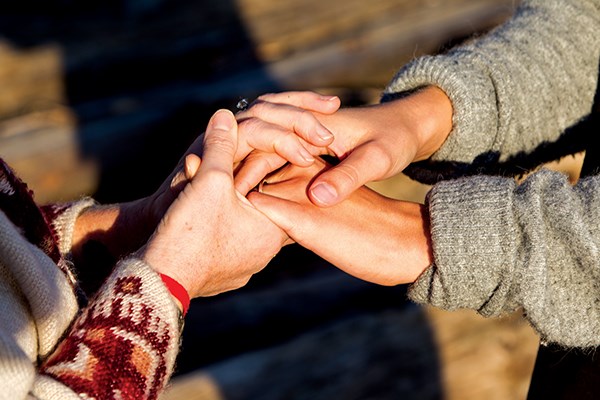“But it was my fault” or “He said he was sorry” or “It isn’t so bad”: These are some of the rationalizations women in relationships with violent partners may use when they try to make sense of the abuse they face.
Though women often blame themselves, there’s never an excuse for abuse, says Lynnaea Le Drew, a front-line support worker with the Howe Sound Women’s Centre Society.
“It is not your fault. You are not to blame,” she said. “You cannot control his behaviour.”
Le Drew said relationships exist on a spectrum from healthy to abusive.
A relationship can be considered healthy “if you are safe, if you are respected, if you are free enough to communicate your needs. If the love goes both ways,” she said.
A provincial review was recently completed on the most extreme result of a violent relationship.
From 2010 to 2015, 100 deaths resulted from domestic abuse in the province, according to the B.C. Coroners Service Death Review Panel report released last month.
Key findings in the report include that 78 per cent of the dead were women, most were between 20 and 59 years old and less than one-third of the victims had reported any violence to police.
Eighty per cent of victims were killed in their home.
Only 36 per cent of the victims contacted or used formal victim services, crisis lines or shelters.
If a Squamish woman is looking to get out of a relationship with a violent partner, a first step could be the Howe Sound Women’s Centre.
“If that doesn’t feel right or you don’t know about us, hopefully you are telling someone you trust,” Le Drew said. “Our hope is that eventually you would find us and you could chat about wherever you are at. About safety planning and options.”
Le Drew stressed that the woman leads any planning with the centre.
“Our main thing is her safety and letting her know there are resources and supports out there if she does decide to leave or stay and be supported throughout that process.”
A personalized safety plan may include, for example, having important documents and identification ready to go and having a place to go if you decide to flee, and a back up to that in case you need it.
For women not comfortable calling police, another option for women fearing a violent partner is to contact Squamish RCMP Victim Services.
“In the past we have had victim services meet women here,” Le Drew said of the women’s centre.
“They are in plain clothes… and they have been a great resource for us.”
One of the most important things is that as a society we talk openly about violence against women, Le Drew said.
“It happens in our town. It happens to your friend, to your co-worker, your client. It is everywhere and there is still this idea that it doesn’t really exist.”
Be prepared if someone discloses she is being abused, Le Drew advised and know how to respond with care, compassion and without judgment.
Let them know that you are there for them, honour the courage it took to disclose their circumstances and offer to be a support and help find resources, Le Drew advises.
“It is important you let her know you have heard her and you are around for the long haul,” she said.
As bleak as it can seem, whatever situation a woman is in, there can almost always be a bright future.
“We see women’s strength and resilience and ability to heal every day,” Le Drew said.
For more information on the Howe Sound Women’s Centre Society go to hswc.ca. If you are in crisis, call 1-877-890-5711.
The society launched its 12 Days of Christmas fundraising campaign on Dec. 12. Each day of the campaign the centre publishes some of the items women and children need in the format of the famous song.



